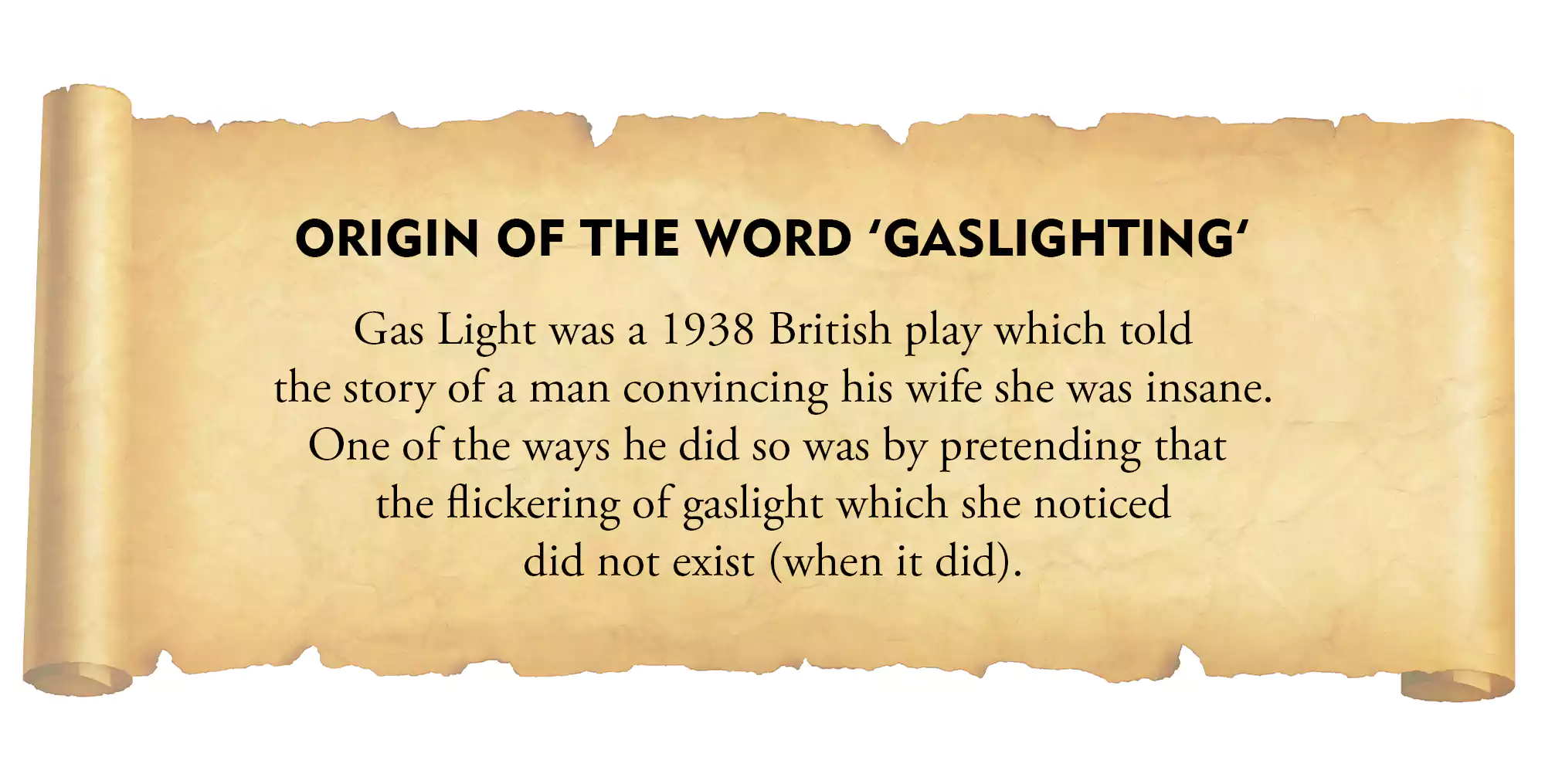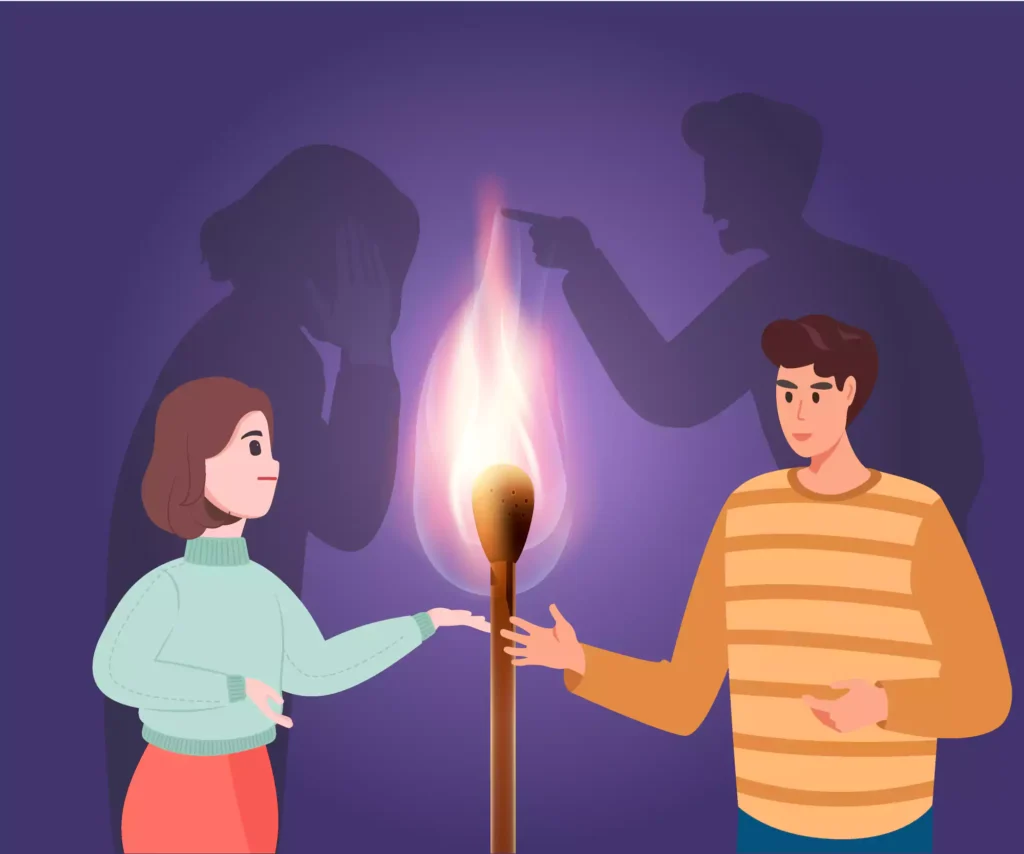If you’re unfamiliar with the intricacies of the term gaslighting and it confuses you, you are not alone.
“Stop imagining things. You never remember things correctly.”
“You’re overthinking it!”
“I never said/did that. Are you crazy?”
“If you loved me, you would….”
These are some phrases that people often use while gaslighting others, be it intentionally or unintentionally. Could you relate to those? Have you ever received such comments from someone close to you?
What is gaslighting, really?
Simply put, gaslighting is a form of emotional and psychological abuse. It is usually a conscious and manipulative act where the abuser/bully makes the victim second guess how they feel or what they think so the aggressor can get the upper hand.
In its most basic form, gaslighting happens in two ways—dismissal and creation. The deliberate denial of something that happened and manipulation that makes a person believe a more fabricated version of the memory are clear signs of gaslighting.
How can you tell if you’re being gaslit?
Gaslighting happens when someone manipulates you into thinking that your version of events didn’t happen the way you remember or say it happened. They might question your authority, deny the evidence you have, and mislead you into believing a false narrative.
So, how do you know if you’re being gaslit? Identifying this is challenging because gaslighting usually happens within close relationships. It doesn’t just happen with significant others—it can happen with your family, friends, coworkers, and acquaintances. The trickiest part about gaslighting is that it is not always obvious when it’s happening. Thus, it is difficult for the victim to call out such behaviour.
Signs that are cues for gaslighting include the following:
- They are insensitive to how you feel
- They minimise and invalidate your feelings by claiming you’re being ridiculous
- They make you feel like you’re always mistaken by overriding your version of the story, and
- They keep cutting you off and interrupting your narrative.
The term has also been reduced to a catch-all phrase lately, making identifying gaslighting behaviour even more difficult. Hence, it is necessary to notice whether the expressions have a recurring pattern or just differences of opinion.

Long-term effects of gaslighting
Such abuse can damage one’s mental health and put reality under scrutiny. First, the abuser makes the victim believe they ‘provoked’ the abuse. Then, when the victim tries to defend themselves, the abuser paints himself/herself in the colours of a victim and turns the entire situation against the actual victim.
Constant manipulation also makes the victim believe they are forgetful and need help from someone else to keep track of things. Such manipulation also leads to the person isolating themselves and withdrawing from social situations. The isolation might as well be at the abuser’s insistence because it helps avoid the opinions of a third party who could clear the confusion. This entire thing ultimately favours the abuser while putting the victim in a more vulnerable and dubious position.
Therapy is helpful for relationships that have occasional, angry communication. It could also help if a neutral (and perceptive) acquaintance were to play mediator and find better ways to communicate so that no one feels dismissed. At the same time, one should remember that if gaslighting becomes a consistent factor in someone’s behaviour, it’s a clear red flag. Unfortunately, it is nearly impossible to reason with such people.
How can popular media address gaslighting?
Mainstream media can bring about a change by helping people identify gaslighting. Even healthy discussions on social media platforms can help in spreading the message. According to a report released by Refuge, a UK-based organisation to help women and children escape domestic abuse, the number of helpline calls increased after TV shows depicted such abuse. You can also help share links or recommend books to someone you know who might be suffering from gaslighting to stir a conversation without directly forcing them to address their situation. However, it’s best not to involve yourself if you’re unsure of the situation.
Every human bond is supposed to be a shared experience. Gaslighting is a phenomenon that gradually erodes the very core essence of that shared space. It is cruel and damaging. At the same time, if we use such labels casually and excessively, it can do more harm to the bond than good. However, using such terms correctly and sensitively can empower victims to stand up for themselves.


